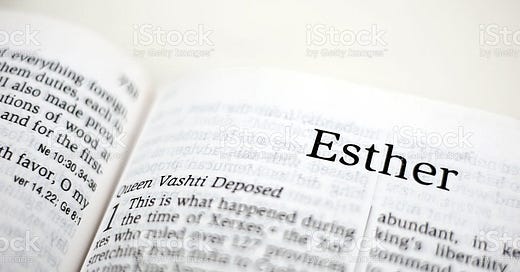The Brave Person Knows Fear the Coward Never Will
Reflecting on The Second Sunday of Easter: Two Days after Sunday (Year C)
Scripture
Psalter: Psalm 122
Old Testament: Esther 8:1-17
Epistle: Revelation 2:8-11
___
Prayer
Living God, long ago, faithful women proclaimed the good news of Jesus' resurrection, and the world was changed forever. Teach us to keep faith with them, that our witness may be as bold, our love as deep, and our faith as true. Amen.
___
Reflection
Then Esther spoke …
Keep reading with a 7-day free trial
Subscribe to Faith Seeking Understanding to keep reading this post and get 7 days of free access to the full post archives.




